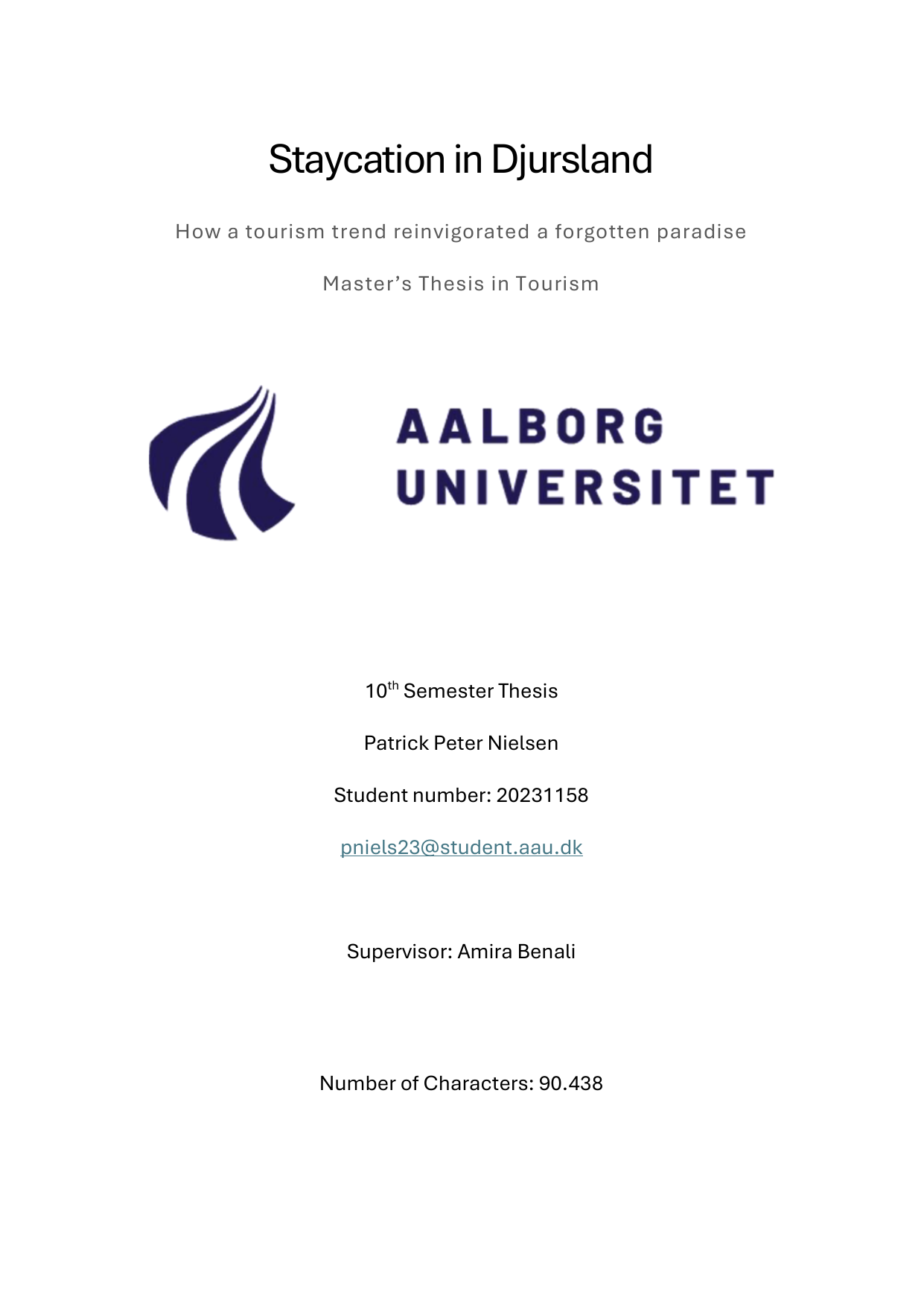
Staycation in Djursland - How a trend reinvigorated a forgotten paradise
Author
Term
4. term
Education
Publication year
2025
Submitted on
2025-10-17
Pages
37
Abstract
The thesis sets out to explore the phenomenon of Staycation and its’ relationship to the studied area of Djurslands increasing revenue and visitor numbers, in the context of the Covid-19 pandemic. Djursland is a region that has seen radical improvement within the tourism sector, during a period of time where the global Covid-19 pandemic forced international travel to a halt, severely limiting the amount of international travelers arriving at the destination. Based on qualitative research, including interviews, non-participant observations, as well as statistical data, the paper examines interconnected relationships between the studied phenomenon and the studied region, through the lens of the perceptions of the stakeholders and the context of the pandemic. Additionally, the paper seeks to explain the reason for the tourists choice of destination and uncover the potential Djursland has to realize to ensure growth in the future. The research takes a point of departure from the constructivist paradigm and inductive approach to uncover meaning from the viewpoints on the core subjects of the case. Furthermore, the research relies on qualitative data, including semi-structured interviews, non-participant observations and thematic analysis of the interviews. The theoretical framework is based on the work of Manthiou et al (2022) regarding the concept of Slow Tourism and Pichierri et al’s (2023) work on the conceptualization of Staycation. Key findings from this paper include the alignment of perception between the different stakeholders, as while not directly admitting to the impact the Covid-19 pandemic had on the tourism providers visitor numbers, they indicated that it had significantly increased interest in the region. Additionally, tourism’s impact through the perceptions of the locals and policy makers noted that it could be a factor for general social and economic growth in the region. Further supported through an examination of the background of the region, combined with the statistical analysis and the context of the pandemic to establish causality. The paper arrives at the conclusion that the phenomenon of staycation is the primary cause, accelerated by the Covid-19 pandemic, as the trend reemerged during the pandemic, which is then put into perspective through an analysis of the Slow Tourism product that Djursland presents, to establish the reason for the Staycation intention of the consumers and establish the causality between the reemergence, the increasing revenue and visitor numbers of Djursland, during Covid-19. As a result the project contributes toward a framework for how to determine causality between a phenomenon and a general trend seen in a given subject destination. Additionally, the paper contributes to the tourism studies of a currently understudied areas of tourism, regarding the destination of Djursland and the phenomenon of Staycation. Future studies could benefit from the framework of research presented in this paper.
Keywords
Staycation ; Slow Tourism ; Djursland ; Denmark ; Covid-19
Documents
